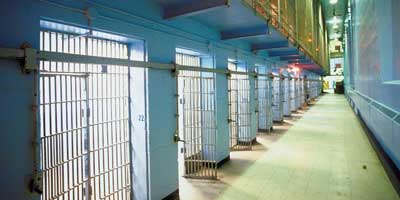
WASHINGTON—The chairmen of two U.S. Conference of Catholic Bishops’ committees welcomed recent executive actions by President Joe Biden to address racial equity in housing and the use of private prisons by the federal government.
The orders will reduce discrimination in federal policies, Archbishop Paul S. Coakley of Oklahoma City, head of the Committee on Domestic Justice and Human Development, and Bishop Shelton J. Fabre of Houma-Thibodaux, Louisiana, head of the Ad Hoc Committee Against Racism, said in a Feb. 1 statement.
One order directs the Department of Housing and Urban Development to review the Trump administration’s repeal of the Affirmatively Furthering Fair Housing Rule, a plan to tackle housing discrimination and segregation. Put in place by President Barack Obama’s administration, the rule required cities and towns to examine their housing patterns for racial bias, report the findings and set goals for addressing segregation.
The second order directs the Department of Justice to phase out the use of private prisons, which hold about 14,000 of the 2 million people incarcerated in the U.S.
“To decrease incarceration levels, we must reduce profit-based incentives to incarcerate by phasing out the federal government’s reliance on privately operated criminal detention facilities,” Biden’s order said.
The bishops said repealing the Trump administration’s rule on housing “is a step in the right direction to restoring needed protections against housing discrimination.”
The Trump rule minimized the responsibility of the federal government to promote fair housing, their statement said. “The federal government has a critical role to play in overcoming and redressing our nation’s history of discrimination, and we hope the administration follows through on the important work of promoting fair housing and human dignity,” they said.
Housing and Urban Development Secretary Ben Carson announced July 23, 2020, his agency was replacing the Obama-era regulation with a new fair housing rule called “Preserving Community and Neighborhood Choice.”
He said at the time the 2015 rule “proved to be complicated, costly and ineffective” and forced communities “to comply with complicated regulations that require hundreds of pages of reporting.”
Civil rights advocates made the repeal of the Trump administration rule a priority during the presidential election campaign.
Regarding private prisons, the bishops said the USCCB has “long questioned the efficacy of private companies running prisons, and this step is a positive development in criminal justice reform.”
“We encourage the administration to consider similar policies in the future regarding civil immigrant detention facilities,” they added.
